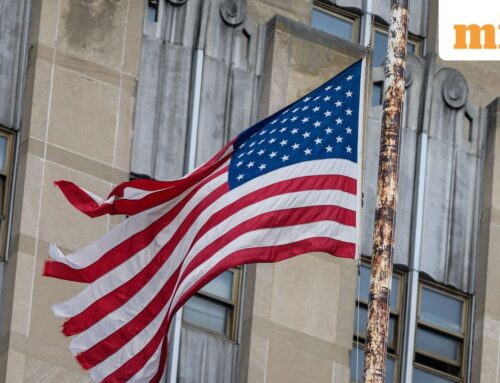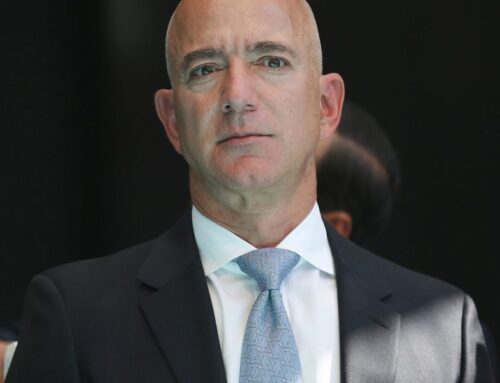EPA Wants Staffers to Skip Professional Law Association’s Events
September 25, 2025
Environmental Protection Agency employees are being told not to participate in events hosted by one of the nation’s premier environmental legal associations, according to a letter reviewed by Bloomberg Law.
The letter, dated Sept. 24 and signed by EPA Deputy Administrator David Fotouhi, tells the agency’s political leadership that “it is no longer in the Agency’s interest for employees to participate in their official capacity in any conference, program or other event organized by the Environmental Law Institute.”
The letter further states “EPA employees should not accept invitations to or participate in” events such as ELI’s Climate Judiciary Project or annual awards dinner.
Recent reports, congressional hearings, and congressional oversight efforts have raised “significant concerns with ELI’s alleged efforts to inappropriately influence the judiciary, including judges presiding over environmental litigation matters, in an ex parte fashion under the guise of ‘education’,” according to the letter.
Fotouhi said the House Judiciary Committee sent a letter in August to the president of ELI, “citing public reports that allege that ELI and [the Climate Judiciary Project] have engaged in attempts to influence the impartiality of judges through their ‘trainings’ and describing the groups’ activities as secretive and expressly biased.”
He also said “concerns have been raised” that ELI’s funding from the EPA and other federal agencies may constitute support of its activities that have been questioned by members of Congress.
ELI could not be immediately reached for comment.
ELI is a large professional association that many EPA employees belong to. Other members belong to environmental organizations such as the Natural Resources Defense Council, as well as universities, law firms, and corporations. ELI’s stated mission includes developing law and policy, including “training judges around the world on critical topics in domestic and international law.”
A small handful of ELI’s program areas include topics the Trump administration has de-emphasized, most notably environmental justice.
The Climate Judiciary Project Fotouhi mentioned is a collaboration with “leading national judicial education institutions to meet judges’ need for basic familiarity with climate science methods and concepts,” according to the ELI website. The program’s mission is “to make available to federal, state, and local judges the basic science they need to adjudicate the climate litigation over which they preside.”
Vicki Arroyo, the former head of policy at EPA under former President Joe Biden, said ELI’s programming is bipartisan, focuses largely on upholding the rule of law, and is often aimed at people who are unfamiliar with the nuances of environmental law.
“They’re very well respected and really kind of a neutral party,” said Arroyo, now an environmental law professor at Georgetown. “The kind of work is very mainstream. It’s not an advocacy organization.”
Richard Briffault, a constitutional law professor at Columbia Law School, said he sees no violation of the constitutional freedom of assembly in the EPA’s order if all it means is that staff members shouldn’t mention their affiliation or perhaps appear on panels.
“But I don’t think they can say that you can’t be a member of the organization,” Briffault said. “They can say you would have to go on your own time and your own money.”
Barring government employees from being members as private individuals “would be like saying you can’t join the NAACP, or you can’t be a Democrat,” Briffault said. “That they could not do.”
Nevertheless, Briffault said the letter could have a chilling effect on staff members who want to continue being ELI members even as private individuals.
Victoria Nourse, a constitutional law professor at Georgetown University, added that government agencies can and do restrict their staff members’ appearances in their professional capacity. They can also restrict certain kinds of personal appearances, such as receiving awards or gifts, Nourse said.
The federal government can only bar its employees from joining political or professional interest groups if doing so would interfere with their job duties, “which ELI participation would surely not,” said Kevin Cope, a professor of law and public policy at the University of Virginia.
But the question of what constitutes an employee’s “professional capacity” can be thorny, Cope said.
“It’s a vague term that could imply a variety of restrictions, some of which might violate their freedom of association or speech rights,” he said. “For example, are they prohibited from talking about their views that are based on their government experiences? Are they prohibited from revealing their government affiliation altogether? Some of these could raise constitutional concerns.”
Fotouhi’s letter was addressed not directly to EPA staff or their union, but rather to the EPA’s assistant administrators, deputy assistant administrators, regional administrators, chief of staff, and general counsel.
Search
RECENT PRESS RELEASES
Related Post



